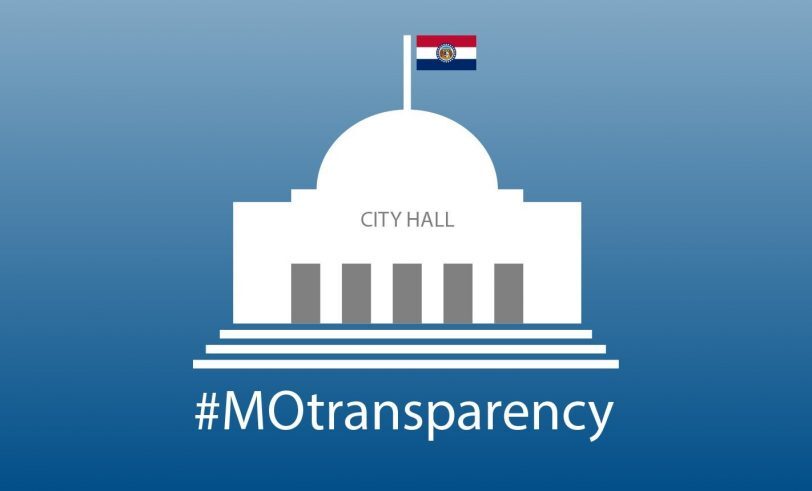In Denial: Municipal Checkbook Hall of Shame

My last post talked about one of my favorite emails I received during the municipal checkbook project, from the tiny city of Linneus, which put in extra effort to find a creative way of providing us its pen-and-paper spending records. Today, I’m focusing on my least favorite- our team’s correspondence with the city of Exeter, one of the many cities I came across during the first phase of our project that only posts its contact information on a city Facebook page. Looking through these small-town Facebook pages in search of email addresses was one of my favorite parts of the checkbook project, since they often included information that gave me a sense of each city’s community beyond a faceless website.
Unfortunately, Exeter’s response to our request didn’t live up to the cheery atmosphere of its Facebook account, which has the city’s brightly colored logo of a cartoon tree as its profile picture. Two days after we sent our initial request, city attorney Darwin Groomer responded with this:
“Before the City will comply with your records request, you must tell me who you are and why you believe you need the information. No one has ever heard of you. Your request/demand is denied, until you comply with our demands, and until we deem it necessary to comply.”
Obviously, there are some real problems with Mr. Groomer’s response. I’m not a lawyer, but it was just as clear to me as to the attorney on our checkbook request team that there’s no loophole in the Sunshine Law requiring the government in question to have heard of the person making the request. The law is intended to make government documents accessible to anyone who wants to see them, not just those who city officials decide meet their personal criteria. After we informed the Attorney General’s office of Exeter’s violation, we received a second email in which Mr. Groomer told us that at some point he would provide an estimate. We received the estimate, $15, almost 2 weeks later.
Of all the cities in this year’s municipal checkbook project, Exeter’s initial flat-out refusal to comply unless we met a standard set not by a democratic process, but arbitrarily by a single attorney, showed the least interest in transparency. Even though the city eventually complied with our request at a fair price, I believe Exeter residents deserve better than a government that may decide to invent exceptions to a law that protects citizens’ right to know how city officials make important decisions and spend public money.


